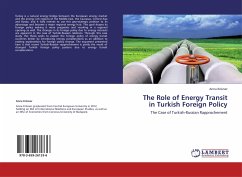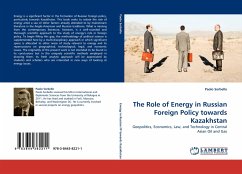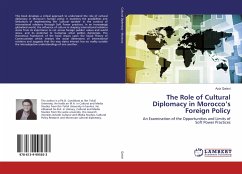Turkey is a natural energy bridge between the European energy market and the energy rich regions of the Middle East, the Caucasus, Central Asia and Russia, and it fully intends to use this geo-strategic position to its advantage and become a major regional energy hub. This goal shapes its foreign policy making it more pragmatic and resulting in a regional opening as well. The changes in its foreign policy due to energy interests are apparent in the case of Turkish-Russian relations. Through this case study, this thesis seeks to explain the foreign policy of energy transit countries better by introducing energy considerations as an addition to existing explanations for foreign policy change. The argument presented here is that recent Turkish-Russian rapprochement is partly the result of changed Turkish foreign policy posture due to energy transit considerations.
Bitte wählen Sie Ihr Anliegen aus.
Rechnungen
Retourenschein anfordern
Bestellstatus
Storno








